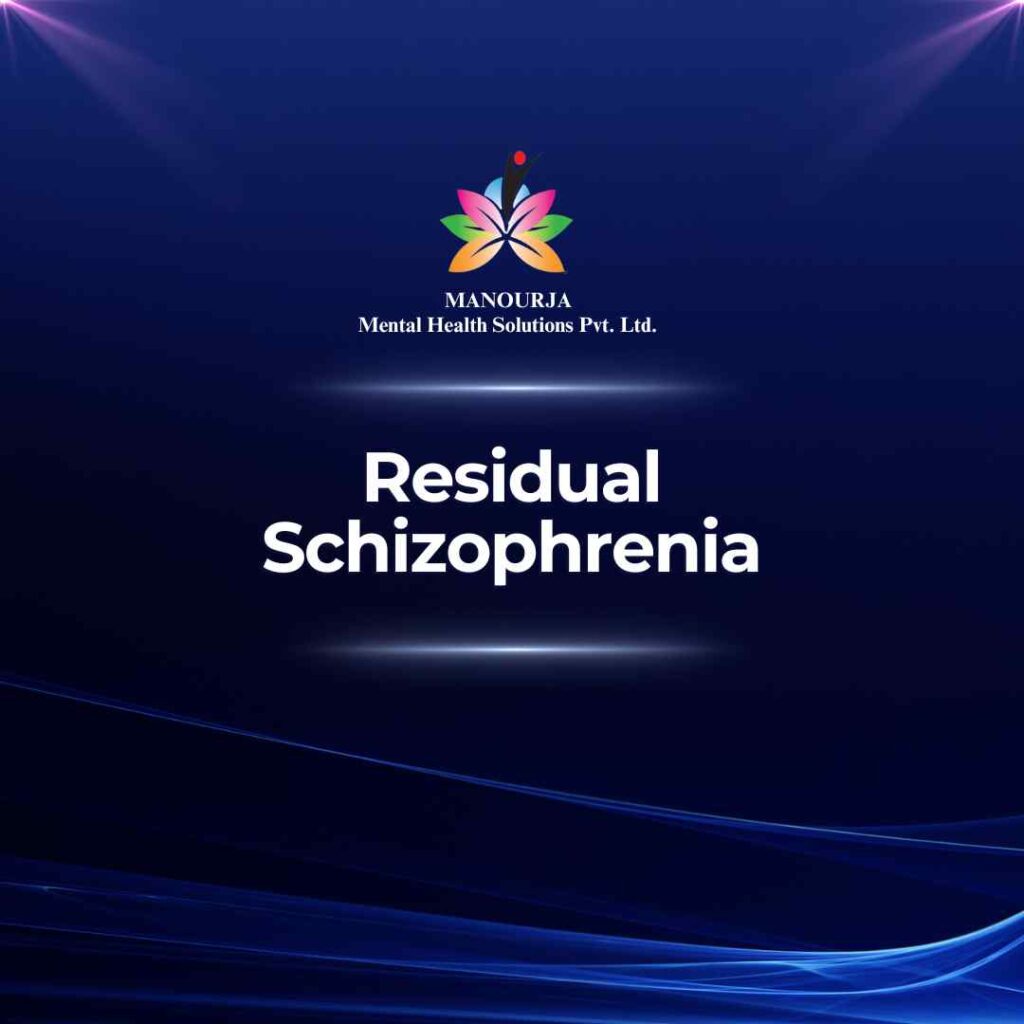Residual Schizophrenia

Residual schizophrenia was a diagnostic category used in previous versions of the Diagnostic and Statistical Manual of Mental Disorders (DSM) to describe patients who have a history of schizophrenia but currently exhibit only mild symptoms, primarily negative symptoms, without prominent positive symptoms like delusions or hallucinations. This category is no longer officially recognized in the DSM-5, as the understanding of schizophrenia has evolved towards viewing it as a spectrum disorder with varying symptom presentations over time.
Key Characteristics
- Negative Symptoms: These are predominant and include diminished emotional expression, lack of motivation (avolition), reduced speaking (alogia), inability to experience pleasure (anhedonia), and social withdrawal.
- Minimal Positive Symptoms: While the acute phase with severe delusions and hallucinations has passed, subtle or infrequent positive symptoms might still be present.
- History of Schizophrenia: Individuals previously exhibited full-blown symptoms of schizophrenia but now show a significant reduction in the severity and frequency of these symptoms.
Forms
In the context of modern psychiatry, what was previously categorized as residual schizophrenia would be treated as part of the ongoing management of schizophrenia. Individuals may go through phases where their symptoms lessen, and they predominantly show negative symptoms. The concept emphasizes the variable nature of the disorder, where symptoms can wax and wane over time.
Treatment of Residual Schizophrenia
Treatment for residual schizophrenia focuses on managing negative symptoms and improving quality of life, as the absence of severe positive symptoms often shifts the treatment goals from acute symptom control to long-term functionality and well-being:
Medication
Antipsychotic drugs may still be necessary to control lingering symptoms and prevent relapse into acute psychotic episodes. However, dosages might be adjusted based on the current symptom severity.
Because negative symptoms are less responsive to traditional antipsychotics, newer atypical antipsychotics, which have a broader effect on negative symptoms, might be preferable.
Psychotherapy
Cognitive Behavioral Therapy (CBT): While traditionally used to address positive symptoms, CBT can also help individuals cope with negative symptoms by developing strategies to increase engagement and activity.
Cognitive Remediation: Techniques aimed at improving cognitive deficits associated with schizophrenia, such as problems with memory, attention, and executive functions.
Social Skills Training
This is crucial for individuals with residual schizophrenia, as negative symptoms often include difficulties in social interactions. Training can focus on improving communication skills, social interaction, and relationship-building.
Vocational Rehabilitation
Helps individuals gain skills for employment or return to school, fostering a sense of purpose and improving independence.
Support Groups and Community Therapy
Participating in support groups can provide social interaction and peer support, which are beneficial for those with significant social withdrawal.
Family Therapy
Educates family members about the nature of schizophrenia and the specific challenges of residual symptoms. It helps in creating a supportive environment that can encourage the patient’s involvement in social activities and personal goals.
Lifestyle and Supportive Care
Regular physical activity, a healthy diet, and structured routines can improve overall well-being and help manage symptoms.
Conclusion
Although “residual schizophrenia” is no longer a separate diagnosis in the latest DSM, recognizing and treating the phase of schizophrenia characterized by predominantly negative symptoms is critical. Treatment focuses not only on symptom management but also on enhancing functional abilities, social integration, and quality of life.
At MANOURJA, we believe in the transformative power of counseling. Our experienced therapists offer a safe and supportive space where you can explore your thoughts, emotions, and challenges. Through personalized counselling sessions, we’ll work together to develop coping strategies, build resilience, and achieve lasting positive change. Discover the path to a healthier, happier you with MANOURJA counselling services.
MANOURJA Rehabilitation Services
At MANOURJA, we’re dedicated to helping you in rebuild your life, after difficult times. Our rehabilitation services focus on understanding what you need to move forward, whether you’re recovering from addiction, trauma, or any psychological – social challenges. We create personalized plans, that are all about helping you, regain your strength and find hope again. With a caring team by your side, you’ll have the support to make real progress and take steps toward a brighter, healthier future.
